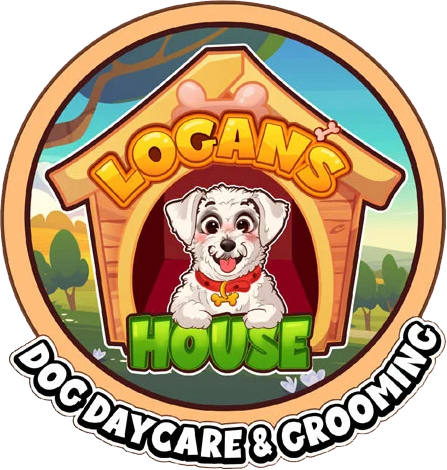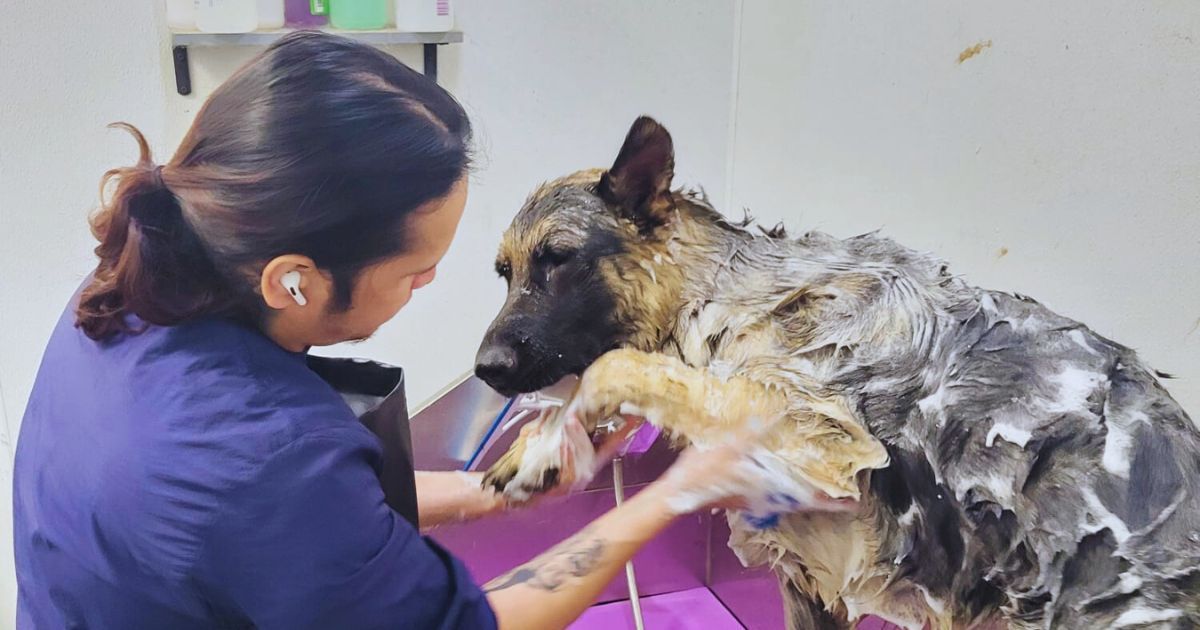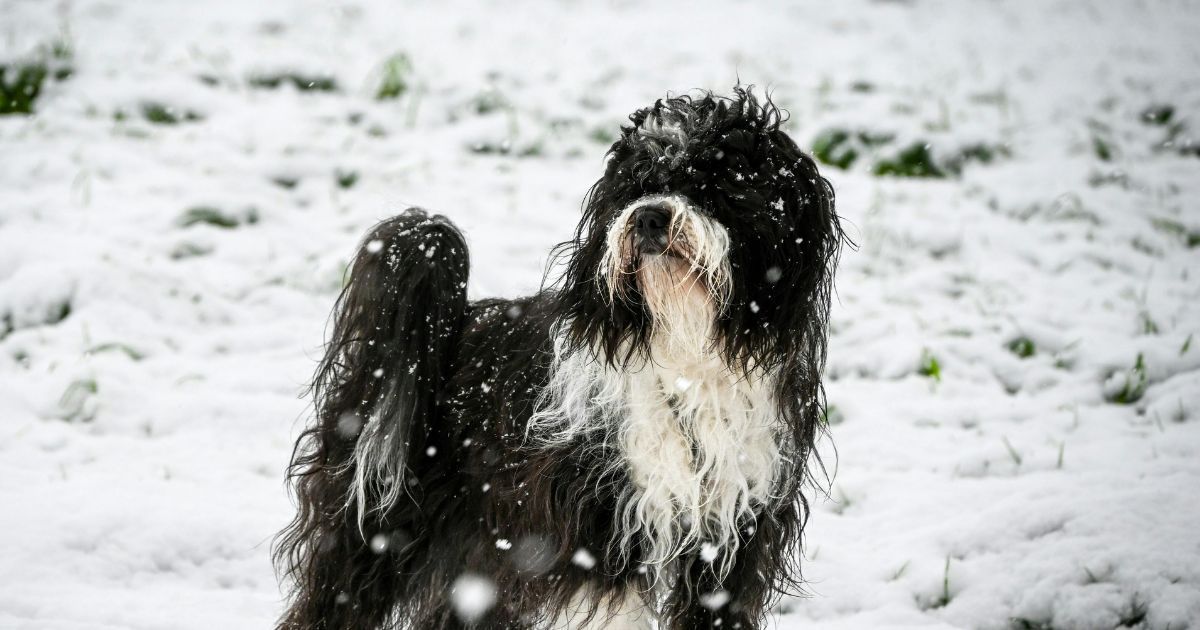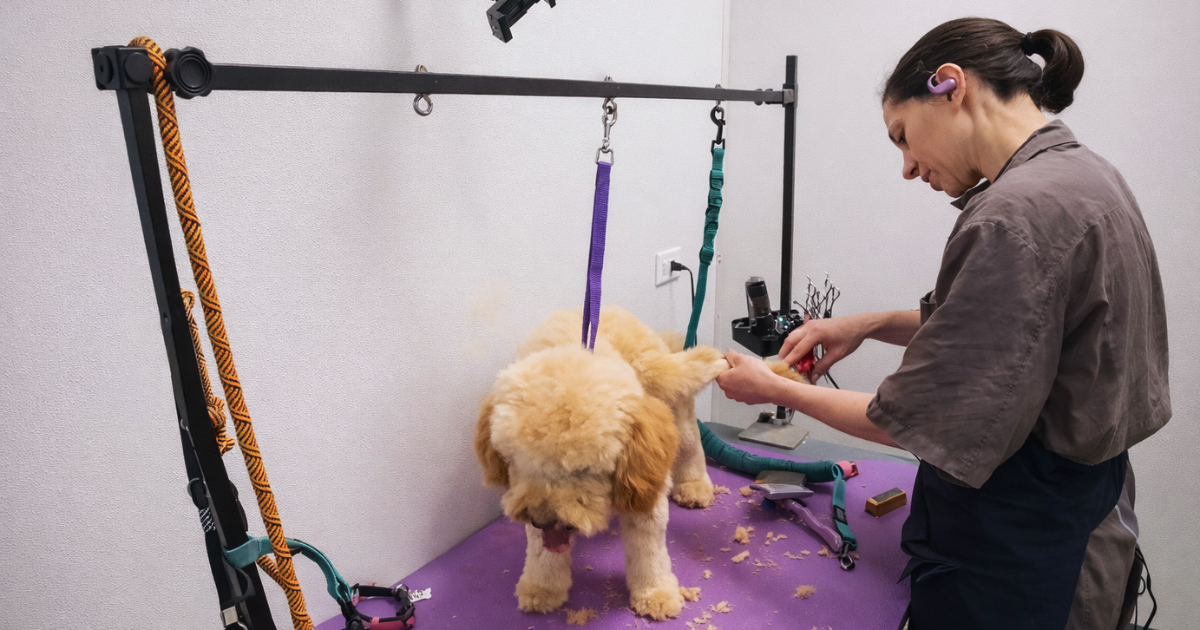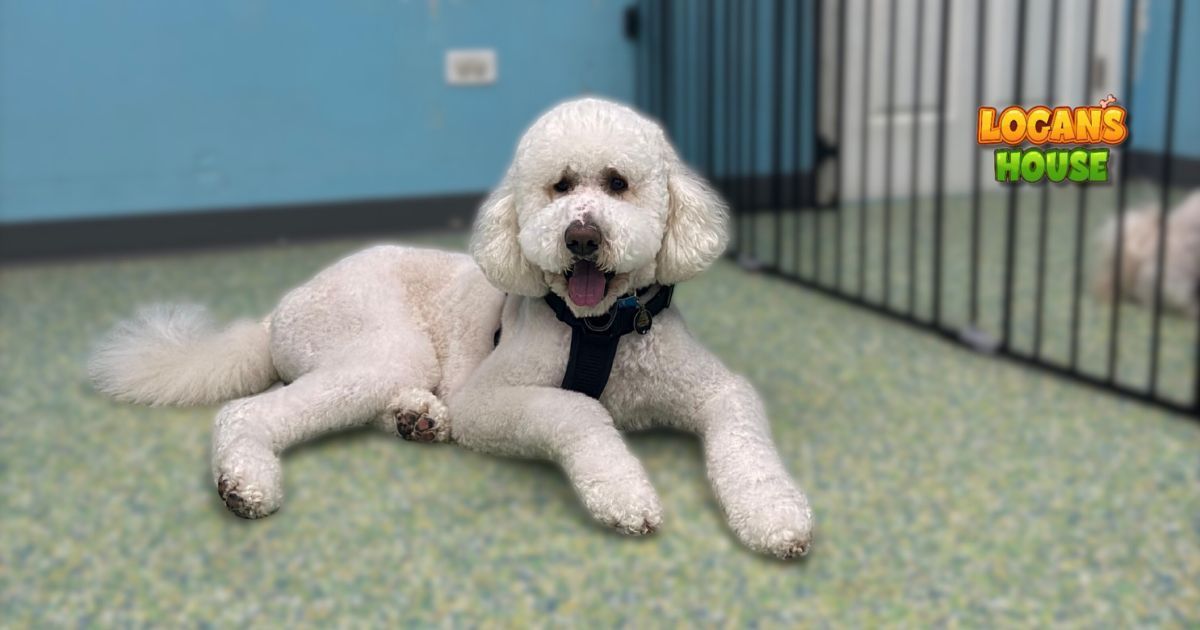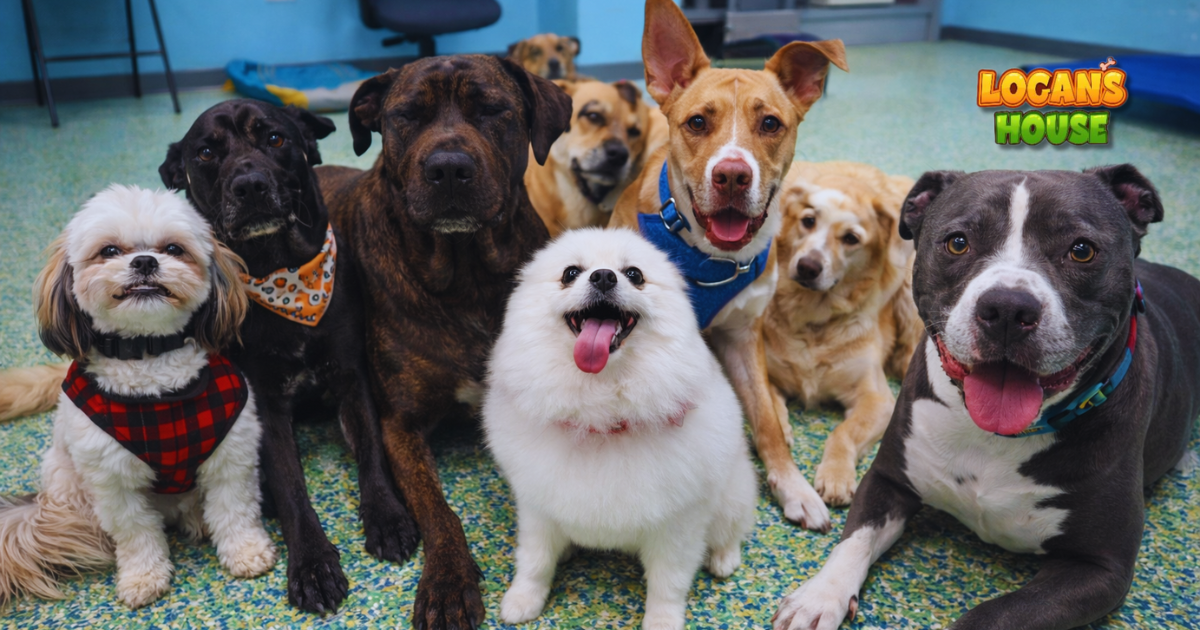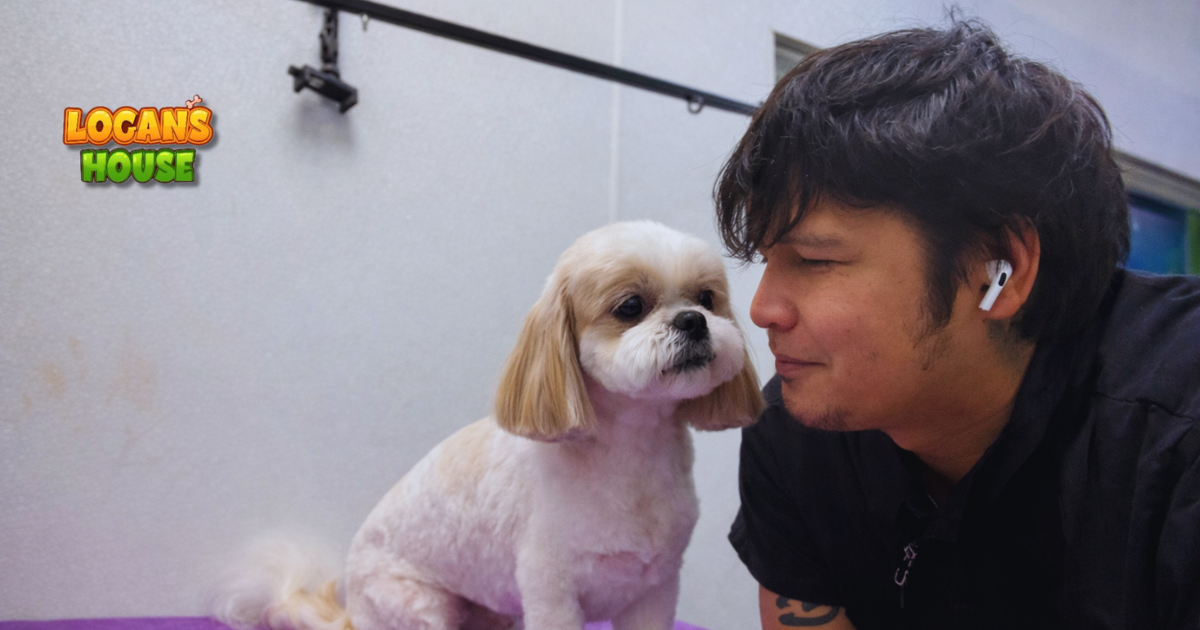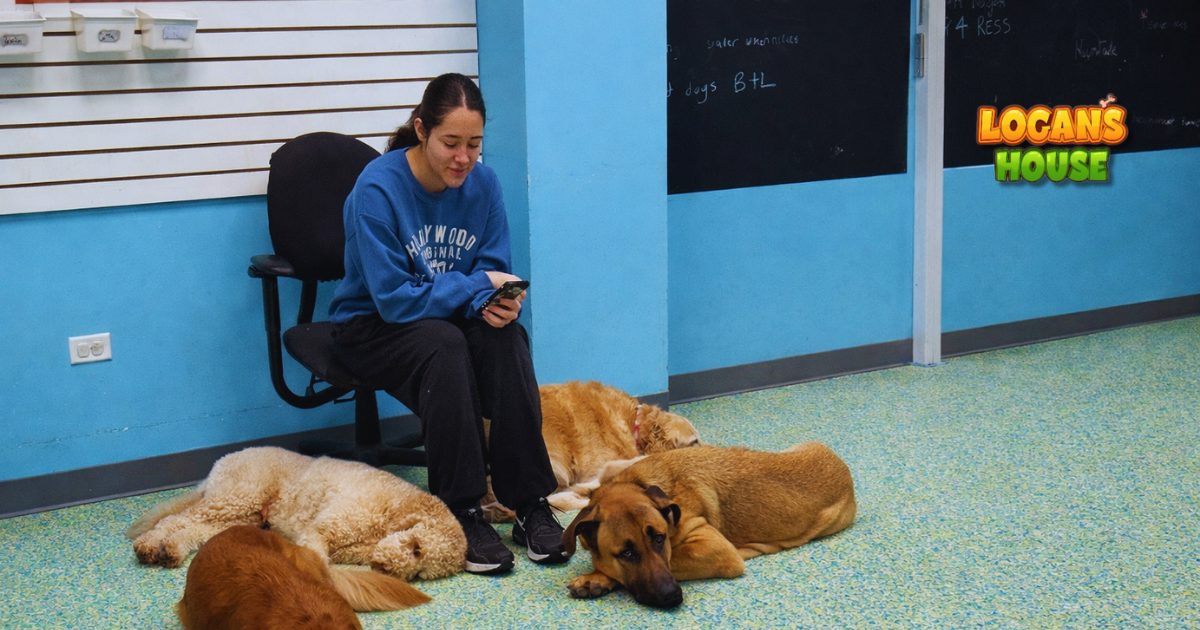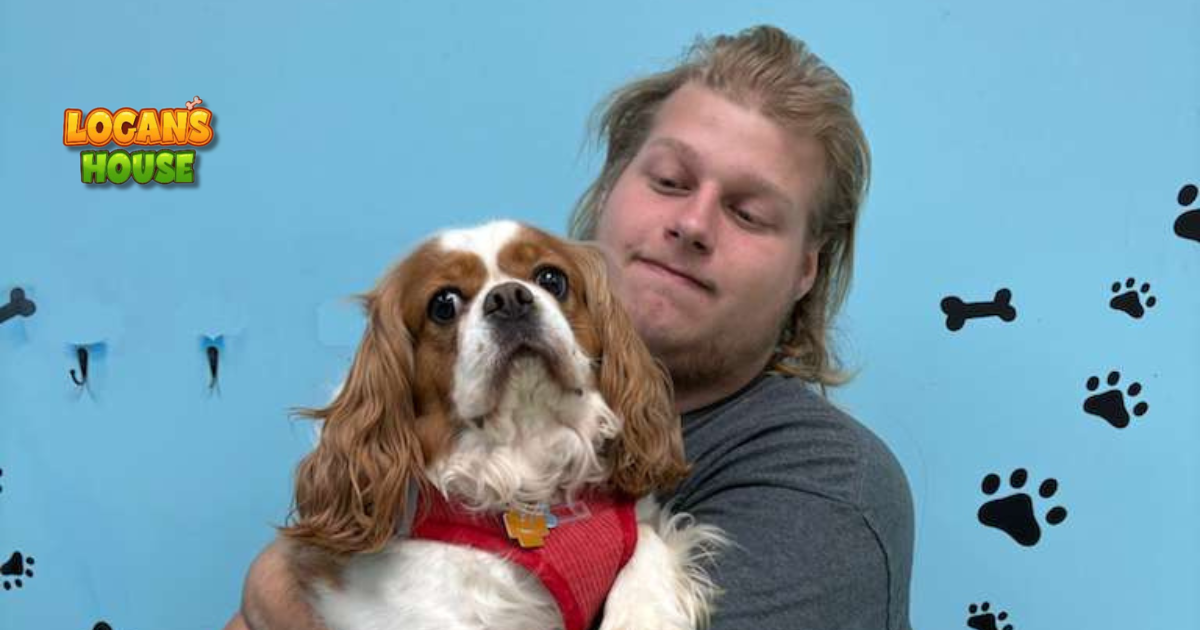Should You Play Tug of War With Your Puppy?
June 30, 2025
Benefits of Tug of War for Your Dog’s Behavior and Training
Tug of war is one of the most common games dog owners play with their puppies, but it’s also one of the most misunderstood. You may have heard warnings that tug games encourage aggression or dominance. On the flip side, trainers and behaviorists now largely agree: when done right, tug of war is not only safe, it’s also healthy, enriching, and incredibly fun for your pup.
At Logan’s House,
we believe in safe, structured play as part of raising a confident, well-behaved dog. As your trusted partner for dog daycare in Gurnee, IL, we’re here to help you make smart choices in your puppy’s development, starting with how you play.
In this guide, we’ll break down the myths, the science, and the best practices of tug of war with puppies. Let’s tug into it!
Why Tug of War Is a Natural and Beneficial Game
Dogs are natural predators. Even your fluffy little doodle or snuggly Shih Tzu has deep instincts to bite, tug, and shake toys. Tug of war taps into those instincts in a healthy way, and lets your puppy blow off steam in a controlled, interactive setting.
The Behavioral Benefits
- According to the American Kennel Club (AKC), tug of war:
- Builds impulse control
- Teaches proper bite inhibition
- Provides physical and mental exercise
- Deepens the bond between dog and owner
At Logan’s House, our enrichment-based dog daycare integrates structured playtime, like tug, to support positive behavior outcomes.
Myth-Busting: Does Tug of War Cause Aggression?
This is perhaps the most persistent myth in the dog world, and it's simply outdated. Studies, such as those by Rooney & Bradshaw (2003), have found that dogs who play tug of war with their owners show higher levels of confidence and obedience, not aggression. The key? Rules and structure.
Here’s what makes the difference:
- Rules: Teach your puppy to start and stop on cue.
- Control: Use structured sessions, not chaotic free-for-alls.
- Boundaries: Stop the game if the puppy’s teeth touch your skin.
We use similar boundaries in our kennel-free boarding
environment at Logan’s House, where dogs thrive on guided socialization, not roughhousing without limits.
When Can You Start Playing Tug of War With Your Puppy?
Puppies can start tug games as early as 8 weeks old, with supervision and soft toys. The game should always match your puppy’s size, energy, and teething stage.
What To Use:
- Soft, long tug toys (no hard rubber or ropes for teething puppies)
- No old socks or shoes (you’re not teaching them to chew household items)
- Toys that allow a safe distance from your hand
What To Avoid:
- Jerking the toy aggressively (especially with small breeds)
- Letting kids play without adult supervision
- Tugging with damaged teeth or gums (ask your vet if unsure)
Looking for a safe place where your puppy can socialize and learn structured play? Check out our puppy training and socialization
sessions at Logan’s House, designed to build great habits from the start.
How To Play Tug of War Safely With Your Puppy
Here’s a quick guide to making tug of war a safe, enriching experience:
1. Have a “Start” and “Stop” Cue
Teach your puppy that you control the game:
- Say “Tug” when you offer the toy
- Say “Drop it” or “Out” to end the game
Practice with high-value treats. At Logan’s House, we use these same positive reinforcement cues in our fear-free grooming sessions
to condition calm behavior.
2. Use Appropriate Toys
Use toys made specifically for tug. Avoid toys that are:
- Too small (choking risk)
- Hard or rigid (can damage developing teeth)
- Frayed or sharp (injury risk)
We recommend rotating toys for mental stimulation, something we also build into our daycare enrichment activities.
3. Reward Good Behavior
When your puppy drops the toy on cue, immediately reward with a treat or a quick restart of the game.
This teaches that giving up the toy doesn’t end the fun; it’s just part of the game.
4. Stop If It Gets Too Intense
If your puppy gets too aroused (growling loudly, grabbing at hands), pause the game. Calm down before resuming. Tug should be a fun bonding experience, not a hyper-arousal trigger.
Real-Life Story: Logan’s Tug Champions
At Logan’s House, we often use tug games to engage dogs who need a confidence boost or an outlet for high energy.
Take Rex, a young Labrador who came to us for kennel-free boarding. He struggled with anxiety and had trouble settling during his stay. With structured tug sessions led by our team, Rex quickly learned to channel that nervous energy into play.
Within days, he became one of our happiest boarders, calmer, more social, and more responsive to cues. Tug, when done right, is far more than a game; it’s therapy with a tail wag.
Service Tie-In: Where Play Meets Purpose
Tug of war fits beautifully into our all-around philosophy at Logan’s House. We’re more than a daycare, we’re a partner in your dog’s health and happiness.
🐾 Dog Daycare in Gurnee, IL
Daily enrichment sessions include tug, fetch, puzzle toys, and training games. Learn more here.
🐾 Kennel-Free Boarding
Our play-focused boarding ensures dogs get plenty of structured play and downtime, mimicking home life, not crates. View our boarding options.
🐾 Dog Grooming Packages
Our groomers use positive handling techniques influenced by enrichment games like tug. We ease anxiety with the same cues and reward systems. See grooming services.
🐾 Training and Socialization
From impulse control to basic manners, our programs build on fun, rewarding games like tug. Inquire about training sessions.
Alternatives to Tug (When Tug Isn’t Right)
Some puppies just don’t take to tug or may need breaks due to teething or injury. That’s okay!
Try these instead:
- Fetch with a soft ball
- Puzzle feeders
- Gentle wrestling or rolling a toy on the floor
- Snuffle mats for scent work
- Enrichment games at our daycare are designed to stimulate all senses
For more indoor mental stimulation ideas, check out our blog: The Secret Language of Dog Enrichment.
External Expert Opinions (Outside Our Local Market)
Want even more validation that tug of war is great? Check out these non-local expert sources:
- Dog Star Daily (UK): Ian Dunbar, veterinary behaviorist, advocates tug to teach bite inhibition.
- Victoria Stilwell Academy: Promotes tug as a healthy outlet for working breeds.
- Companion Animal Psychology: Highlights the behavioral science behind positive dog play.
These international trainers and researchers back up what we’ve seen firsthand at Logan’s House.
Final Tug Thoughts: Should You Play Tug of War With Your Puppy?
Absolutely! As long as it’s done with structure, safety, and purpose. Tug of war is a confidence-building, relationship-deepening, energy-burning game that fits beautifully into a balanced puppy upbringing.
At Logan’s House, we weave this kind of smart play into every service we offer, whether your pup is staying for the day, overnight, or just stopping in for a groom. Let us help you raise a well-rounded dog, one joyful tug at a time.
Explore More Logan’s House Services:
